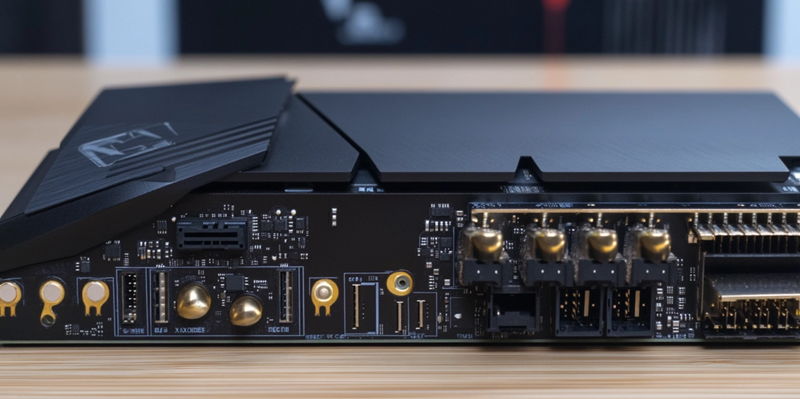The advancement of memory technology is crucial for achieving better computing performance, and MSI, a leading name in the PC motherboard industry, has risen to the challenge. MSI has officially confirmed that its X870E motherboards will support the innovative CUDIMM (Clocked Unbuffered Dual In-Line Memory Module) standard, marking a significant step for those looking to maximize the potential of AMD’s upcoming Ryzen 9000 and 8000 series CPUs. This development promises enhancements in data transfer rates and system stability, making it a cornerstone for both tech enthusiasts and professionals aiming to push the boundaries of their computing capabilities.
The Push Towards DDR5 CUDIMM Standard
The DDR5 CUDIMM standard is gaining momentum due to its superior memory transfer capabilities, standing out thanks to the Clock Driver (CKD) feature, which regenerates the clock signal to support improved memory frequencies and dynamic voltage adjustments. These technological advancements pave the way for higher memory performance and increased system reliability, critical for both everyday applications and demanding computing tasks.
Several prominent memory manufacturers, such as Biwin, V-Color, and Asgard, are leading the charge, offering CUDIMM modules capable of reaching impressive speeds of up to 9,600 MT/s. The adoption of CUDIMM is not solely about speed; it is also about ensuring that systems handle demanding applications more smoothly and efficiently. For MSI, incorporating this standard into their X870E motherboards means providing users with cutting-edge technology that meets the needs of modern, performance-focused computing environments. This move underscores the growing industry-wide recognition and adoption of the DDR5 CUDIMM standard as a key component for future advancements.
MSI’s Implementation Strategy
MSI’s announcement is a game-changer for PC builders and gamers who seek to achieve high performance from their systems. The X870E motherboards will be compatible with AMD’s upcoming Ryzen 9000 and 8000 series, specifically designed to leverage the advantages of CUDIMM memory. Unfortunately, these new advancements will not extend to the Ryzen 7000 series CPUs due to compatibility issues, which means users with older processors will miss out on the benefits.
MSI’s in-house overclocker, TOPPC, has disclosed that while CUDIMM support is an exciting development, the initial rollout will come with certain limitations. The onboard memory slots on these motherboards will be modified to fit the CUDIMM standard and the upcoming CAMM 2 standards. However, users may need to temper their expectations regarding achieving ultra-high speeds immediately. Early adopters of the X870E motherboards might not experience the full spectrum of CUDIMM’s capabilities right out of the gate, as it will take some time for the technology to mature and for further advancements to be realized.
Industry-Wide Trends and Compatibility
The broader technological industry is also moving towards adopting the CUDIMM standard. Intel’s upcoming Arrow Lake-S processors will feature CUDIMM support, utilizing the “GEAR 2” configuration, which enables the memory to operate at double the processor’s memory clock speeds. This parallel development illustrates a significant industry trend toward standardizing higher-performing memory modules across leading processor platforms.
The dual commitment from AMD and Intel to support CUDIMM underscores the standard’s potential to become the new norm for high-performance systems. This unified approach from the industry’s leading players is likely to influence other technology companies and drive a more cohesive and unified adoption of memory technology across various platforms. As the DDR5 CUDIMM standard becomes more prevalent, users can expect significant improvements in system stability and performance, aligning with the evolving demands of both consumer and professional applications.
In this context, MSI’s forward-looking stance and early adoption of CUDIMM technology position them favorably among competitors. Users eager to explore higher memory speeds and enhanced stability will find the X870E motherboards a compelling choice for future upgrades and builds, ensuring they stay at the forefront of technological advancements.
Initial Limitations and Future Prospects
The progression of memory technology is vital for enhancing computing performance, and MSI, a prominent name in the PC motherboard industry, is at the forefront of this evolution. MSI has confirmed that its X870E motherboards will support the revolutionary CUDIMM (Clocked Unbuffered Dual In-Line Memory Module) standard. This news is significant for those eager to harness the full potential of AMD’s upcoming Ryzen 9000 and 8000 series CPUs. By adopting CUDIMM, MSI’s X870E motherboards are expected to offer superior data transfer rates and improved system stability. This development is not just a minor upgrade; it represents a substantial leap forward, particularly for tech enthusiasts and professionals who aim to push the limits of their computer systems. Enhanced data transfer and stability are crucial for modern applications ranging from gaming to complex data processing tasks. With MSI’s commitment to integrating cutting-edge memory technology, users can expect a marked increase in overall performance and efficiency, making it a pivotal advancement in the tech industry.

